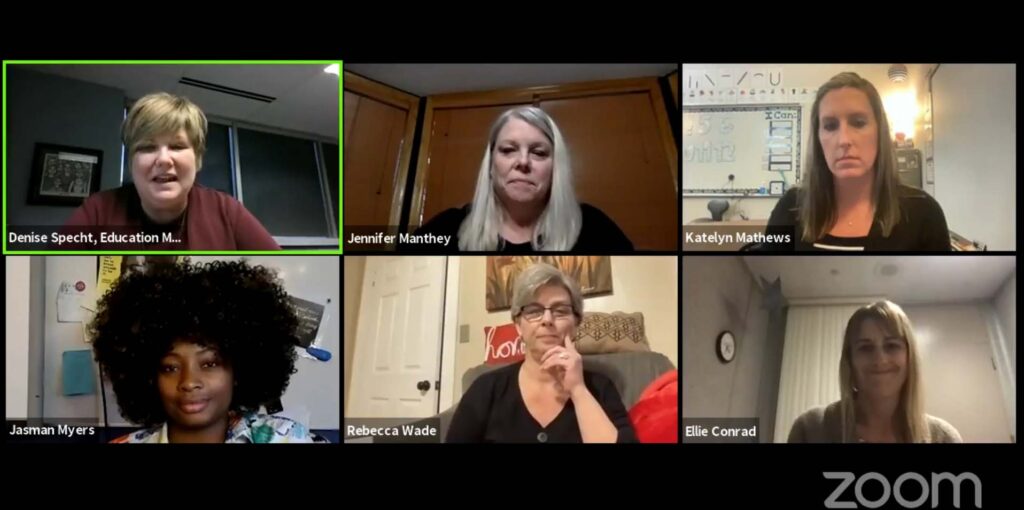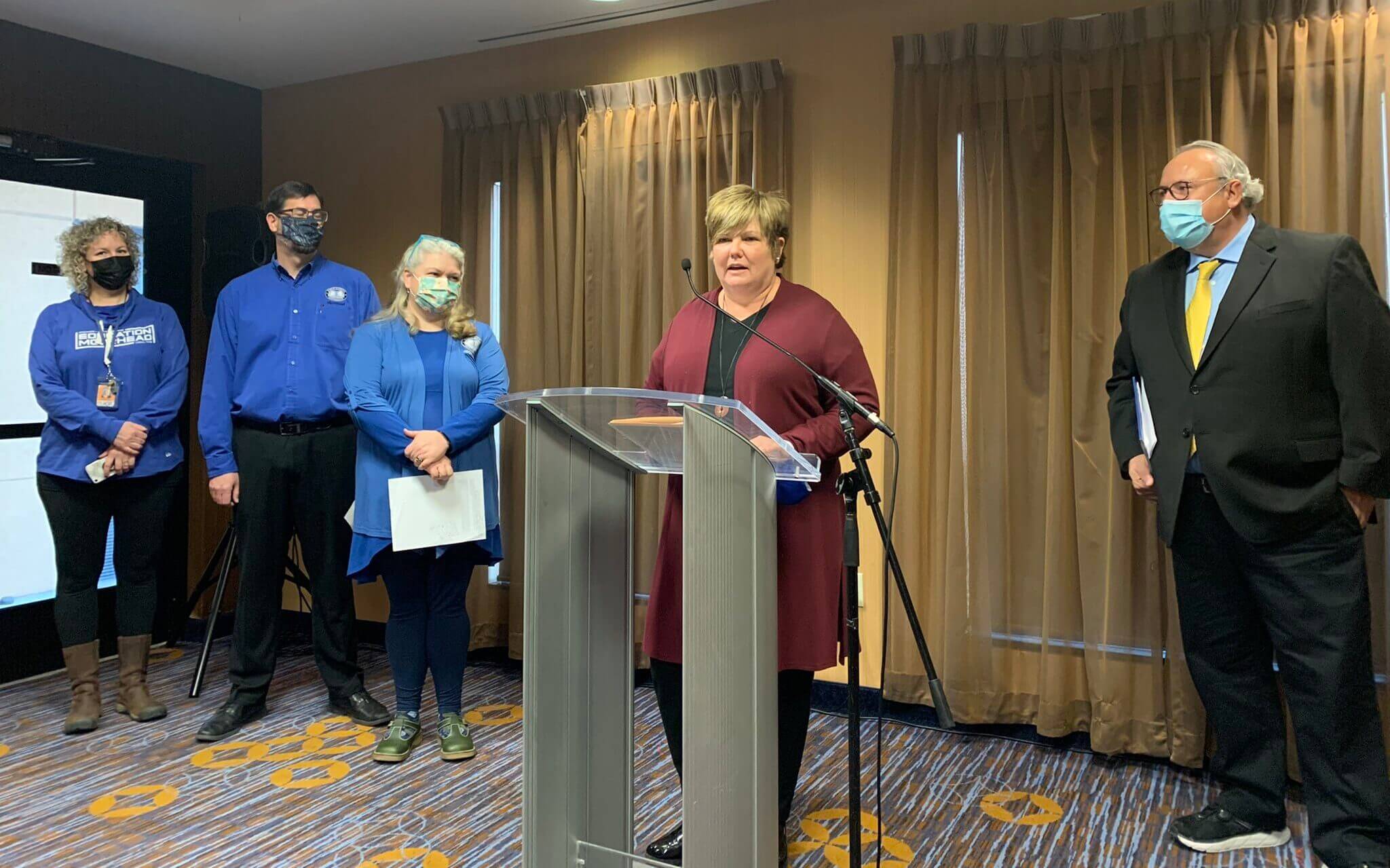The “At a Breaking Point” media tour and Education Minnesota officer tour of locals continued this fall, as part of the union’s efforts to tell the real story of what is happening in our schools this year.
Education Minnesota officers have been visiting local unions and intermediate organizations this year, hearing members tell stories in every part of the state about how their work this year feels unsustainable. As of press time, they have visited with more than 130 member groups.
COVID-19 didn’t create the issues facing Minnesota educators this school year, but it did shine a brighter light on them. After their listening tour, Education Minnesota leaders decided to use the union’s collective power and voice to draw attention to these issues through a media series called “At a Breaking Point: Educating During COVID-19.”
The first media event in the series took place in Rochester Oct. 19, where the issue of education support professional staffing was highlighted.
In November, a press conference discussing special education was held via Zoom.

“Even before the COVID-19 pandemic, special education teachers were dealing with unsustainable caseloads and paperwork requirements,” said Education Minnesota President Denise Specht. “Now, with additional evaluations of recovery services needed and staffing shortages, the situation in our schools is even worse, and we are seeing special education teachers leaving the profession.”
Elk River special education teacher Katelyn Mathews shared her story of overburdens of paperwork and not having enough time to do her work, even with the additional hours she puts in outside of school.
“The lack of special education teachers increases our caseloads,” she said. “Unfortunately, we’ve already had two evaluators quit this year in our district because of workload issues and we’re seeing the number of referrals for special education increase.”
Jasman Myers, an EBD teacher in North St. Paul-Maplewood-Oakdale, spoke at the press conference about the challenges of being more in-person this year.
“We actually had some successes thanks to COVID, being virtual, connecting with families who might not be able to get to the building for an IEP meeting during the day,” she said. “But now that barrier has been put back up. I spend a lot of my personal time to connect with families because nights and weekends might work better for them and to create an IEP that looks like that student.”
Specht discussed how there are financial opportunities at the state level to help release some of the pressures happening in special education. Special education funding is part of Education Minnesota’s legislative agenda.
“Special education has never been properly funded by the state and federal governments, even though those are the entities who put mandates on these educators,” she said. “We appreciate the funding the state has provided in the last few years to help put a Band-Aid on these costs, but it’s still not enough. The state is looking at a surplus and we will continue to advocate for more funding for special education.”
In early December, the media tour went to Moorhead and joined with North Dakota United, their educator union, to highlight the issue of substitute shortages.

“This issue isn’t about educators being out too much,” said North Dakota United President Nick Archuleta. “We need our educators to be able to stay home when they need to, whether for personal or health reasons. The contract signed by the district grants them time off and they should be able to use it like any other working professional.”
“We have a critical sub shortage in our district,” said Dr. Jean Sando, Education Moorhead local president. “Using our prep to cover for each other adds stress but it is an alternative to nothing. But when we have teachers coming to school sick because they don’t want to put the burden on their colleagues, that isn’t good practice anytime and it certainly isn’t good practice in a pandemic.”
“Prep time is the scheduled time for teachers to create and enter scores or assignments, quizzes and tests, talk with students, colleagues, parents, administrators, gather or create classroom materials, run copies, complete online training, read information from building and district administration, meet with team members, meet permanent members or curriculum materials, read response emails, listen to and respond to phone messages, etc,” said Moorhead teacher Jeff Offut. “Oh, and of course, that’s when we get to go to the bathroom. When teachers spend their prep time in another teacher’s classroom, the work that they would have done still needs to be done if it will be done.”
Specht and Archuleta not only participated in the press conference but also did radio interviews and an editorial board visit at the Fargo Forum newspaper about the substitute issue and others facing educators this year.
At a breaking point
The Education Minnesota officers and executive director have visited with more than 130 locals throughout the state this fall and winter, with plans to continue more.
At each meeting, they are hearing stories of staffing shortages in every area of education, staff mental health concerns, physical health concerns related to the ongoing COVID-19 pandemic, and more.
Your union wants to know we hear you. Beyond the media tour, Education Minnesota staff are working with local unions to assist with bargaining and support their members. From COVID bonuses to forgoing staff meetings, there are success stories we will continue to highlight, as well as bring these issues forward to the public, district administration, the Legislature and the governor.


